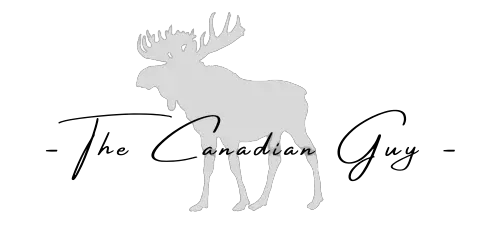What Are The 4 Factors That Determine Wealth?
In 2023, who doesn’t want to be wealthy and live a luxurious life? You must have heard the most famous phrase, “Money Don’t Buy Happiness” which is true but poor doesn’t make you happy too.
Isn’t it a truth?
Therefore, it creates a big hole where people are not able to reach their financial goals due to the lack of financial literacy. As you need to understand that accumulation wealth is derived by the combination of multiple factors such income, saving and investments.
For beginners, Financial literacy can be defined as a set of skills, knowledge and understand of the financial concepts that involves the ability to effectively manage personal finances, make serious decision and analyse various financial system.
Also Read: How To Pull Yourself Out Of The Poverty?
What Is Wealth?
Wealth is the total valuation of assets, resources or possessions owned by an individual, household or country. There are multiple forms of wealth, including money, inheritance, investments, business, investments, gold and other assets that have monetary value. Accumulation of wealth is crucial as it offer financial security in upcoming years of your life.
How To Calculate Wealth?
You can calculate your wealth by following this formula.
Asset – Liabilities = Net Worth (Total Wealth)
For example, you are living in New York in your own Apartment worth $2 Million and you have a strong portfolio of investments worth $5 Million. Along with that, you have some liabilities such as student debt, car loan, new property investment worth $500,000.
($2 Million + $5 Million) – $500,000 = $6,500,000
Now after calculations, you total net worth/wealth is $6.5 Million. Feel free to use this formula and help people in understanding their net worth.
What are the 4 Factors of wealth?
Financial Wealth
The monetary resource hold by an individual, including liquid money, bank balance, investment, stocks, bonds, and other financial investments. Financial wealth represent the money available for use in case of emergency or future purpose.
Also Read: Why Are Financial Habits Important For Financial Freedom?
Physical Wealth
Physical resource refers to ownership of assets that has the ability to generate income. Some example of physical wealth are land, vehicle, machinery, real estate properties, gold, silver, artwork, statues and many more. It also offers multiple benefit both in personal and societal level.
Benefits of Physical Wealth
Economic Stability – Accumulation of physical assets provides a sense of relief that will provide a financial safety net during emergency.
Income Generation – There are certain physical assets such as rental properties, machinery can generate you a regular side income. This income will supplement you primary source of income that will be a life saviour if you are working in a 9-5 job.
Legacy and Intergenerational Wealth Transfer – Physical Wealth can be passed down future generations, offering a foundation of preserving intergenerational wealth and allowing the transfer of assets. Real Estate and Precious Metals are the most common assets that can create lasting legacy and contribute to the financial well-being of future generations.
Also Read: How Do The Wealthy Invest?
Human Capital
Human Capital represents the knowledge, skills, abilities, experience and attributed gained by an individual that increase their productivity and potential. You can posses human capital through training, education, vocational training online courses, job experience and personal developments.
Human Capital plays a crucial role in the competitive market and earning potential. Additional, it helps in learning both cognitive and non-cognitive skills such as critical thinking, problem-solving, communication skills, creativity, teamwork, leadership skills and adaptability.
Social Capital
Social Wealth is the value originated from social interactions, networks, cooperations and shared resources that contribute to the betterment of the society. It increases the opportunities, business transactions and provide better access to information and resources. For example, Buying made in Canada products enhances the Sale transaction of businesses which will enhance the relations between farmers and people.
Social Wealth can be enhanced through positive social connections and collaborations leading to multiple outcomes.
- Trust and Collaboration
- Knowledge Sharing and Innovation
- Access to Resources and Opportunities
- Social Cohesion
- Collective Action and Advocacy
What are the 3 strategies to build wealth?
There are various wealth strategies that an individuals can use based on their financial goals, but let’s understand the most common wealth strategies.
1. Accumulation Strategy
Making money can be hard but accumulation of those income is difficult. We are humans and we want to buy things or I say “Everything” that makes it difficult to accumulate. However, accumulation strategy focuses on generating wealth over time by consistently saving and investing. It prioritize long-term financial goals by taking baby steps to accumulate assets and enhance your investment portfolio.
- Regular saving and building a discipline budget to save a portion of income
- Start Investing in stocks, bonds, mutual fund, guaranteed investment certificate (GICs) or exchange-traded funds (ETFs).
- Take advantage of compounding return through long term investments.
GIC and mutual fund share very minimum differences which makes it harder to choose the best one. So, read GIC Vs Mutual Funds before taking bigger financial step in your life.
2. Preservation Strategy
Preservation Strategy refers to the protection of wealth and preserving capital which is often used by people who have saved (accumulated) a significant amount of money and planning to preserve their wealth by taking minimum risk. Key Components of Preservation Strategy are:
- Diversification of investment to reduce risk
- Regular review and assessment of investment portfolio
- Allocating portion of wealth to Low risk investment and stable investments such as bonds or cash.
- Real Estate Invest to build generational wealth
- Implementation of Risk management tools such as insurance and hedging.
Distribution Strategy
Distribution Strategy refers to generating income from accumulated wealth during retirement or other duration of financial independence. It includes effective management and distribution of assets to meet daily expenses (Income needs by keeping inflation into consideration) while protecting capital. Key Components of Distribution Strategy are:
- Calculating an appropriate withdrawl percentage from investment to manage daily expenses.
- Building a diversified portfolio of income-generating assets
- Strategically taking advantage of retirement accounts, pension plan and other income source to optimize tax efficiency.
- Continual assesing the sufficiency of Income streams and make change to distribution if required.
- Regular Modification and Adjustment in investments to match the changes in financial market, personal needs and life events
Final Words
The definition of wealth can be personal and subjective depending on how an individual is looking towards building wealth. For some people, wealth is all about managing daily expenses whereas most people try to build generational wealth.
Additionally, it is crucial to understand that the factors determining wealth can interact and reinforce each other. For example, Higher Education and valuable skills can offer your a better income that will eventually help in building an investment portfolio and saving more money.
Finally, it is important to understand the different strategies and components of wealth building such financial, physical, social and human capital to achieve the desired outcome.





